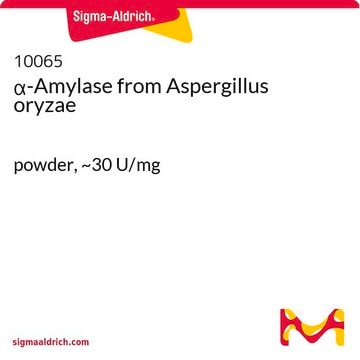A8273
Anti-α-Amylase antibody produced in rabbit
fractionated antiserum, lyophilized powder
Synonym(s):
Alpha Amylase Antibody, Alpha Amylase Antibody - Anti-α-Amylase antibody produced in rabbit
About This Item
Recommended Products
biological source
rabbit
Quality Level
conjugate
unconjugated
antibody form
fractionated antiserum
antibody product type
primary antibodies
clone
polyclonal
form
lyophilized powder
species reactivity
human
packaging
vial of 2 mL lyophilized antiserum
technique(s)
Ouchterlony double diffusion: suitable
indirect ELISA: 1:4,000-1:6,000
storage temp.
2-8°C
target post-translational modification
unmodified
Gene Information
human ... AMY1A(276)
General description
Specificity
Immunogen
Application
Biochem/physiol Actions
Physical form
Reconstitution
Not finding the right product?
Try our Product Selector Tool.
Storage Class Code
11 - Combustible Solids
WGK
WGK 3
Flash Point(F)
Not applicable
Flash Point(C)
Not applicable
Certificates of Analysis (COA)
Search for Certificates of Analysis (COA) by entering the products Lot/Batch Number. Lot and Batch Numbers can be found on a product’s label following the words ‘Lot’ or ‘Batch’.
Already Own This Product?
Find documentation for the products that you have recently purchased in the Document Library.
Customers Also Viewed
Our team of scientists has experience in all areas of research including Life Science, Material Science, Chemical Synthesis, Chromatography, Analytical and many others.
Contact Technical Service











